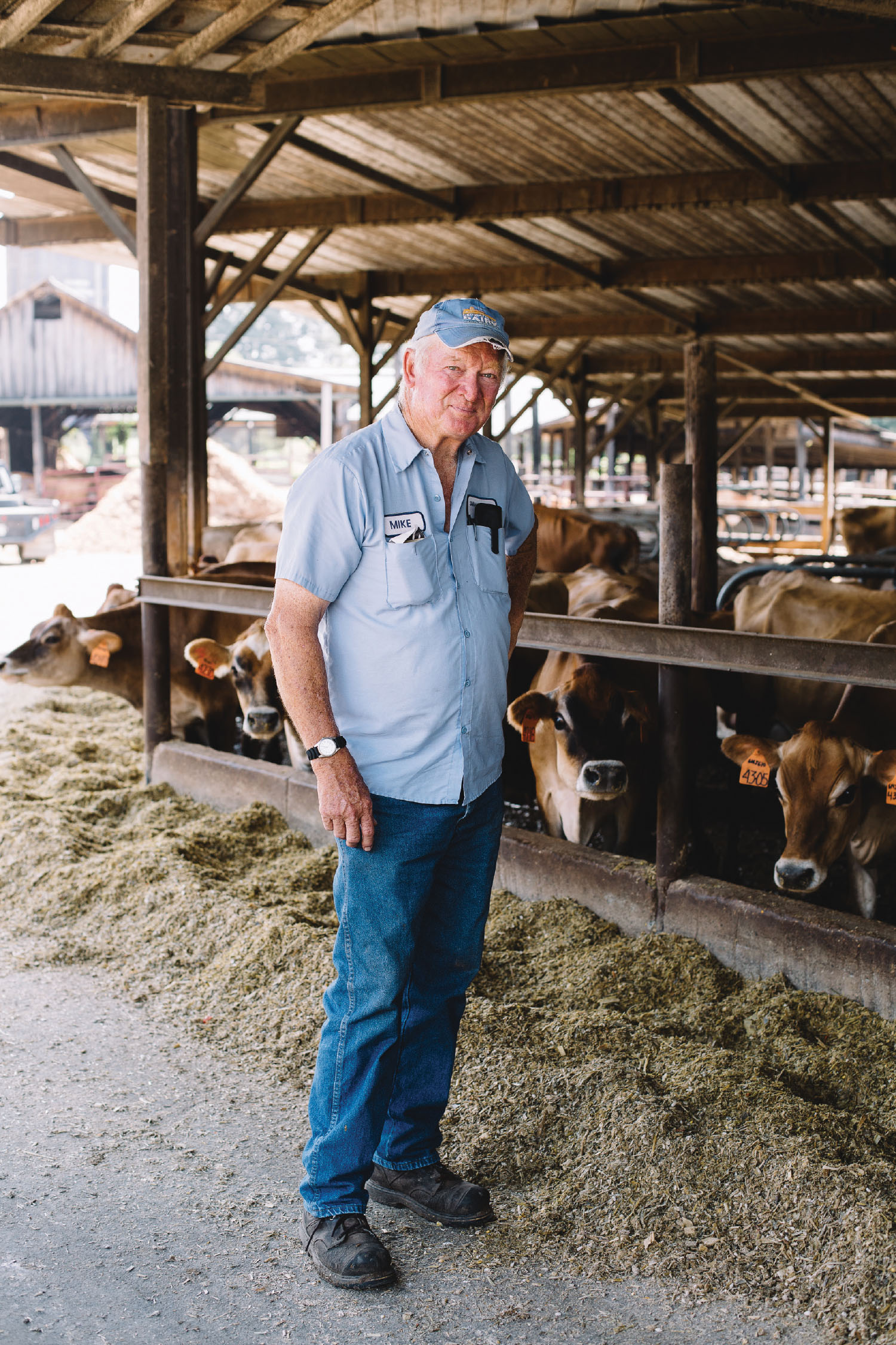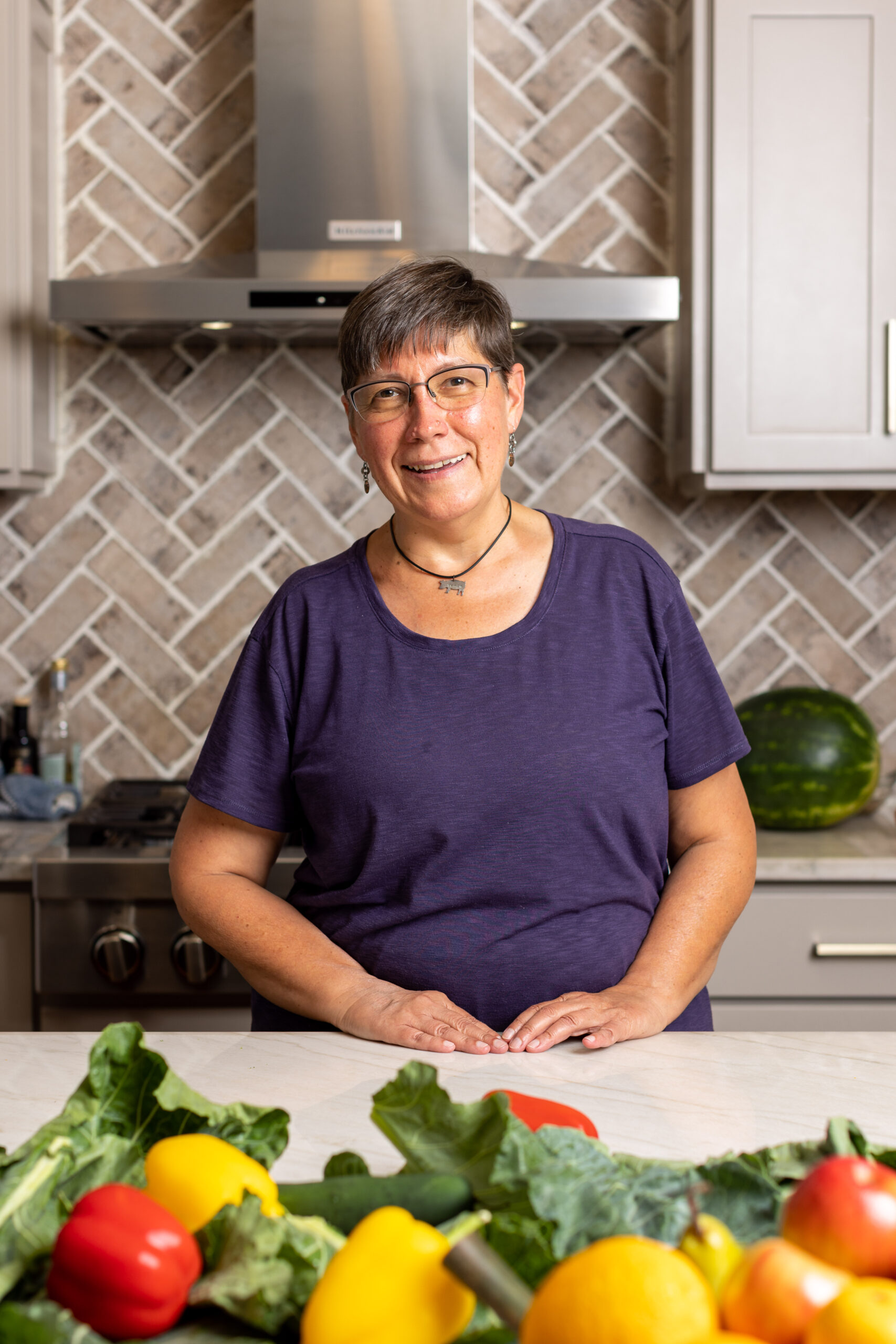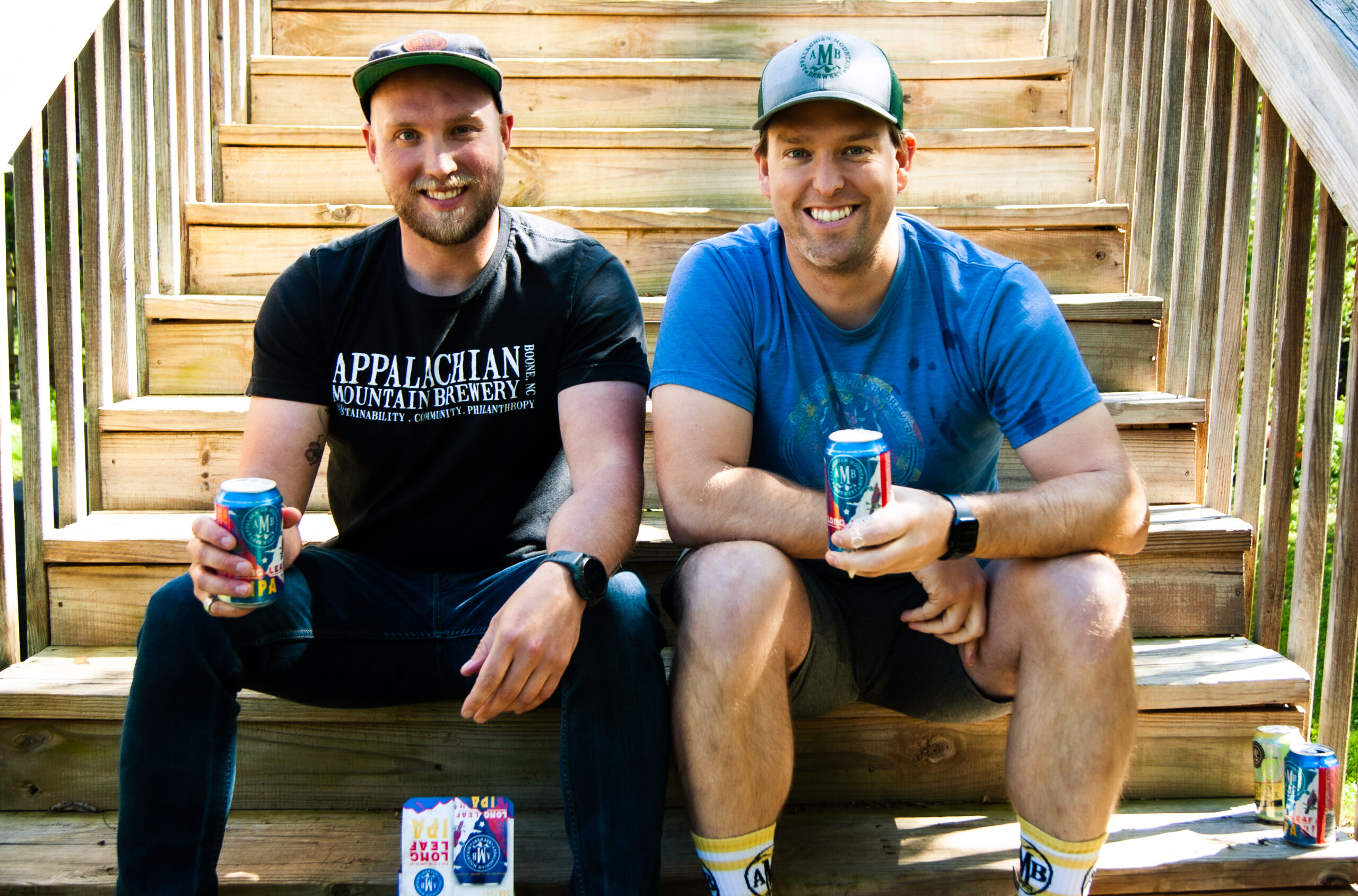
“Pure farmer” gives fairgoers a look at real agricultural life.
Photo by Rachel Pressley
Mike Corn studied Animal Science at NC State, graduating in 1974, and he’s been working with cows ever since. The owner of Small Acres Dairy in Mills River, Corn cares for the cattle owned by Biltmore Farms, the historic Biltmore Jersey herd tracing back to the 1890s. He developed the popular “Mooternity Ward” at the North Carolina Mountain State Fair — where, in a rare, behind-the-scenes exhibition of farm life, veterinarians and agriculture students assist at the live births of pregnant cows whose due dates fall during the fair’s ten-day run. When Corn’s not at the fair, he’s busy producing tons of milk for the mountain region.
For casual fairgoers, the Mooternity Ward is agricultural education on another level. Do you find it effective?
When someone slows down and really pays attention to what is being presented, I can tell we are really making a difference.
What’s special about your Jersey herd?
They were originally located in the Isle of Jersey [in the British Isles] and kept on Staten Island [New York] before being transported to Asheville. This is a friendlier breed. I know most of them individually. They have names, different personalities, and are each a unique addition to the herd.

Mike Corn and his famous Jersey herd. He knows most of his cows by name.
Photo by Rachel Pressley
Explain your sustainable feeding methods …
The recipe for feed that we give our cows consists of recycled ingredients. We obtain each ingredient locally from other farmers, breweries, and cideries. For example, we use parts of crops that are not used [for humans]: husks of corn, pulps and peels from oranges, apple pomace, wet brewers’ grain, cotton seed, a concentrate of different vitamins, and reject tomatoes, squash, apples, and eggplants. The cows love it so much that they don’t walk up to the food because they’re hungry. They come up because they really want to see what’s there.
You’ve been the superintendent of dairy operations at the fair for 25 years, including showing 4-H and FFA [Future Farmers of America] students how to show and care for cattle. What all does this role entail?
I teach the kids how to clean, water, and feed the cattle. For example, one Saturday afternoon, there was a group of FFA students on the farm. A cow was having trouble giving birth because the calf was coming out breech. So, I sent them to get the rope from my truck. I situated the calf’s legs and tied a string around them. I tied the rope to the string to pull the calf out, and when I turned around, the entire class was standing at the rope ready to pull with all of their might to save its life. I yelled, “1…2…3!” and everyone pulled together. Sure enough, the calf shot out! After a few moments, it got up and began nursing. The instructor came to me at the end of the day and said, “These kids have learned more this afternoon than they will this whole semester.” That really is a good feeling, when you hear something like that.
How did it feel to be inducted in the WNC Agricultural Hall of Fame this past May?
Well, it’s a very big honor. A lot of people who are inducted play different roles. I’m a pure farmer, not an influencer. This is what I do.
You’ve been working on a dairy farm for almost half a century, and you’re still actively passing on your knowledge. What keeps you so inspired?
I try to give my best advice to others who ask, and I’ve worked with a few young individuals to help them get started in the dairy business. I just really hope that others can see my passion for this.

A calf on Mike’s farm.
Photo by Rachel Pressley
The North Carolina Mountain State Fair runs Friday, Sept. 7 through Sunday, Sept. 16 at the WNC Agricultural Center in Fletcher (Henderson County). For a schedule of farm events and other information, see the “Mountain State Fair” and “Fair Calendar” links at wncagcenter.org.



